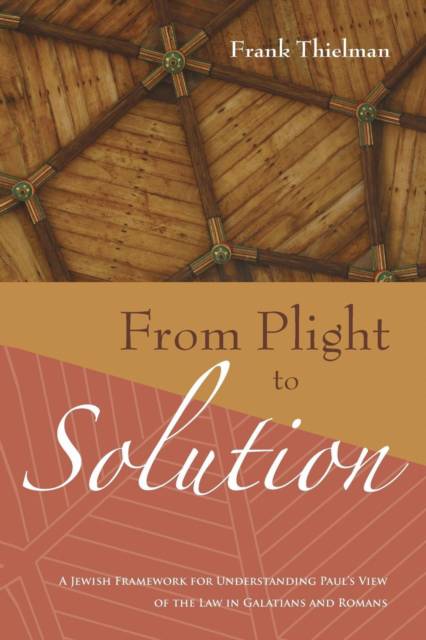
- Afhalen na 1 uur in een winkel met voorraad
- Gratis thuislevering in België vanaf € 30
- Ruim aanbod met 7 miljoen producten
- Afhalen na 1 uur in een winkel met voorraad
- Gratis thuislevering in België vanaf € 30
- Ruim aanbod met 7 miljoen producten
Zoeken
Omschrijving
""[This book] represents an experiment in understanding Paul from the perspective of Jewish eschatology--an experiment, it must be said, which many believe has already been weighed and found wanting. I attempt to argue, below, however, that the failure of this method in the hands of Montefiore, Schweitzer, and others was due to an underestimation of the complex nature of first-century Judaism. When the Judaisms of late antiquity are allowed a voice in the debate on Paul, Paul appears as less a renegade than a reformer. . . . ""The argument below must not be taken to conclude that there was no discontinuity between Paul and Judaism. It is only an attempt to show that in his basic attitude toward the law Paul stands in continuity with parts of the Hebrew scriptures and with many Jewish contemporaries."" --from the Preface Frank Thielman is professor of divinity at Beeson Divinity School of Samford University where he has taught New Testament for nearly twenty years. He is the author, among other books, of Paul and the Law: A Contextual Approach, The Law and the New Testament: The Question of Continuity, and Theology of the New Testament: A Canonical and Synthetic Approach.
Specificaties
Betrokkenen
- Auteur(s):
- Uitgeverij:
Inhoud
- Aantal bladzijden:
- 170
- Taal:
- Engels
- Reeks:
- Reeksnummer:
- nr. 61
Eigenschappen
- Productcode (EAN):
- 9781556356391
- Verschijningsdatum:
- 26/03/2008
- Uitvoering:
- Paperback
- Formaat:
- Trade paperback (VS)
- Afmetingen:
- 156 mm x 226 mm
- Gewicht:
- 249 g

Alleen bij Standaard Boekhandel
+ 50 punten op je klantenkaart van Standaard Boekhandel
Beoordelingen
We publiceren alleen reviews die voldoen aan de voorwaarden voor reviews. Bekijk onze voorwaarden voor reviews.











